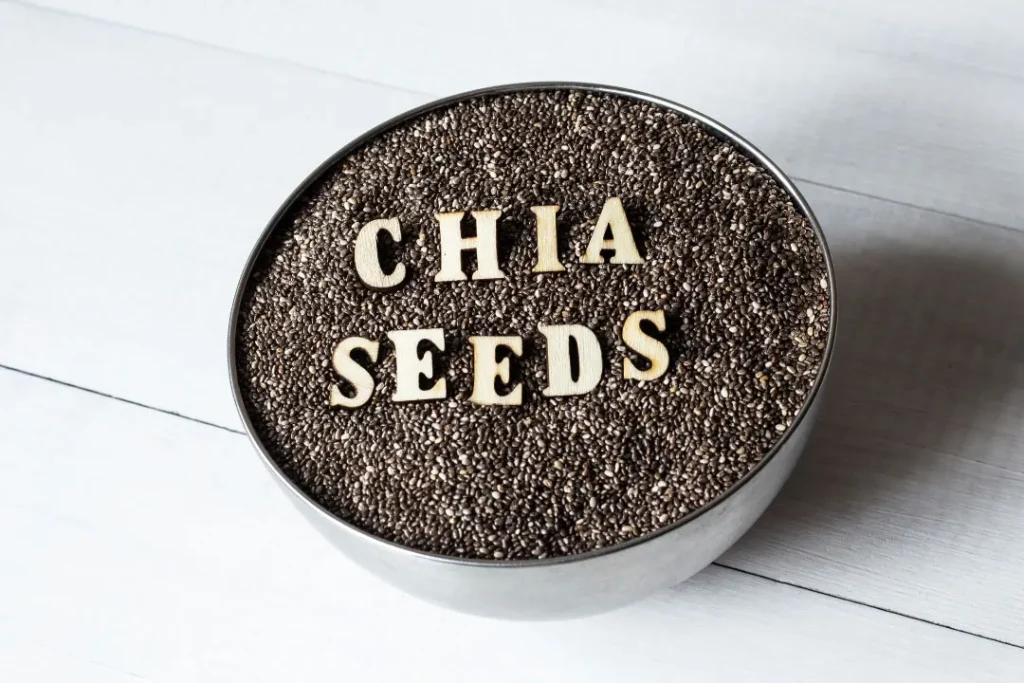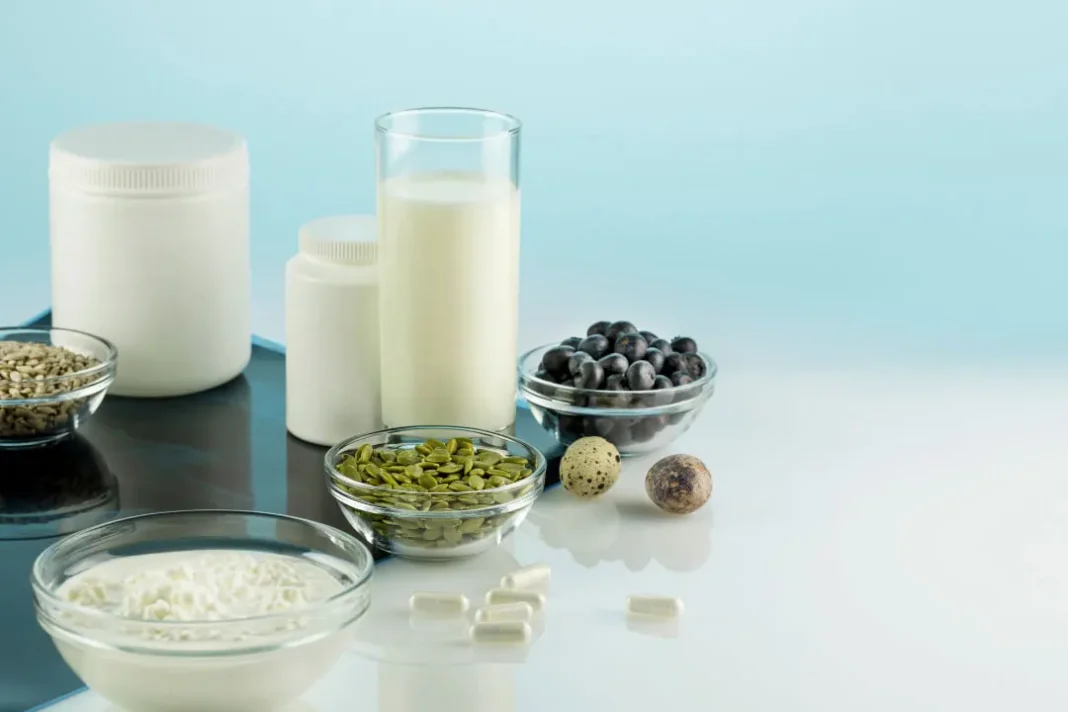Better Nutrition for Pain-Free Movement: Soothe Your Joints With Smoothies for Arthritis and Inflammation
Arthritis is a substantial health concern in the United States, impacting a significant portion of the population. According to the Centers for Disease Control and Prevention (CDC), as of 2019, approximately 22.3% of adults, or over 54 million people, have been diagnosed with some form of arthritis. This statistic encompasses a diverse range of conditions, such as osteoarthritis, rheumatoid arthritis, lupus, and gout. As the population ages and lifestyles shift, it is projected that by 2040, nearly 78 million adults, almost 26% of the adult population, will be affected by arthritis.
Chronic inflammation also poses a significant health concern and is closely linked to the development and exacerbation of arthritis. Inflammation is the body’s natural response to injury or infection, but when it becomes chronic—the inflammatory response persists for an extended period—it can contribute to the onset and progression of various types of arthritis. Prolonged inflammation can cause damage to joint tissues, including cartilage and bone, leading to pain, stiffness, and reduced mobility.
Understanding arthritis, as well as how to mitigate the inflammatory symptoms that can lead to its development, is imperative for leading a healthy and long life. In this article, we will delve into arthritis, its various types, the common symptoms associated with it, and conventional treatment options. Furthermore, we will explore the potential advantages of embracing a holistic approach, complemented by the use of arthritis and inflammation-targeted smoothies made with products like Boomer Boost from Boomers Forever Young.
You May Also Like:
Omega 3 for Arthritis: Ease Joint Pain the Natural Way
Reduce Resting Heart Rate Naturally: Proven Strategies and Supplements
Better Nutrition for Pain-Free Movement: Soothe Your Joints With Smoothies for Arthritis and Inflammation is an original (BetterNutritionNews) article.
Smoothies for arthritis and inflammation:
Understanding arthritis
Arthritis is a collective term encompassing a range of conditions characterized by inflammation and stiffness in the joints. It is a pervasive and often persistent health issue that affects many people worldwide. This condition predominantly targets the musculoskeletal system, specifically the joints, leading to symptoms like pain, swelling, limited range of motion, and potential joint deformities that can develop gradually over time.
Arthritis exists in various forms, each distinct in its etiology, symptoms, and treatment approaches. Osteoarthritis (OA), the most prevalent type, is a result of gradual wear and tear on joint cartilage, typically associated with aging, repetitive joint use, or past joint injuries. Commonly affected areas include the hands, knees, hips, and spine. People grappling with OA often experience joint stiffness and pain, particularly after periods of immobility.
In contrast, rheumatoid arthritis (RA) is an autoimmune disease in which the body’s immune system erroneously launches attacks on the joints, leading to persistent inflammation. RA primarily affects small joints in the hands, wrists, and feet. Its manifestation may extend beyond joint discomfort, involving symptoms like fatigue, fever, and generalized joint pain. Unlike osteoarthritis, rheumatoid arthritis can affect people of all age groups and potentially result in joint deformities and extensive damage if not adequately managed.
Another variant is psoriatic arthritis (PsA), often occurring in tandem with the skin condition psoriasis. PsA leads to joint inflammation, resulting in pain, stiffness, and joint swelling. Gout, another distinct form of arthritis, is marked by the accumulation of uric acid crystals in the joints, typically afflicting the big toe. Gout is characterized by abrupt, severe attacks of pain accompanied by redness and tenderness in the affected joint.
Less prevalent types of arthritis include ankylosing spondylitis, primarily affecting the spine and inciting inflammation in the vertebrae; systemic lupus erythematosus (SLE), an autoimmune ailment impacting various bodily regions, including the joints; and juvenile idiopathic arthritis (JIA), a collective term for multiple types of arthritis occurring in children under 16 years of age. Understanding these diverse forms of arthritis is vital for accurate diagnosis and the development of tailored treatment plans.

Smoothies for arthritis and inflammation:
Common arthritis symptoms
The symptoms of arthritis can vary widely depending on the type of arthritis and the individual affected, but several common signs often manifest in those grappling with this condition. Joint pain is one of the hallmark symptoms, frequently characterized by aching, throbbing, or discomfort in the joints. This pain can range from mild to severe and can be persistent or episodic, often exacerbated by movement or prolonged periods of inactivity. People with arthritis might also experience joint stiffness, particularly in the morning or after periods of rest, making it challenging to initiate movement or perform daily tasks smoothly.
Joint swelling is another prevalent symptom, often accompanied by redness and warmth around the affected joints. This occurs due to the inflammation that arthritis triggers within the joint, resulting in an accumulation of excess fluid. This can lead to a reduced range of motion, making it difficult to bend, flex, or extend the joints fully. Over time, this limitation in movement can lead to muscle weakening and, in severe cases, joint deformities.
Fatigue and general malaise are also frequent symptoms experienced by those with arthritis. The persistent pain, inflammation, and the body’s immune response can contribute to an overall feeling of tiredness and lethargy. Additionally, some forms of arthritis, like rheumatoid arthritis, may lead to systemic symptoms such as fever and weight loss. It’s important to note that arthritis can also affect other parts of the body, including the skin, eyes, and organs, causing a range of additional symptoms based on the type and severity of the condition. Understanding and recognizing these common symptoms is crucial for seeking timely medical attention and developing effective management strategies for arthritis.
Smoothies for arthritis and inflammation:
Conventional arthritis treatments
Conventional treatments for arthritis aim to manage symptoms, improve joint function, and enhance the overall quality of life for people affected by this condition. The approach to treatment often depends on the type of arthritis, its severity, and the specific joints affected.
Pain management is a fundamental part of mitigating arthritis, and this often involves the use of over-the-counter pain relievers like acetaminophen or nonsteroidal anti-inflammatory drugs (NSAIDs) such as ibuprofen to alleviate pain and reduce inflammation.
Physical therapy and exercise play a significant role in managing arthritis. Physical therapists can design tailored exercise routines to improve flexibility, strengthen muscles around the affected joints, and enhance overall mobility. Regular exercise not only aids in managing weight but also helps in maintaining joint health and reducing stiffness. Low-impact activities such as swimming, cycling, and walking are often recommended to minimize stress on the joints.
For people with inflammatory types of arthritis like rheumatoid arthritis, disease-modifying antirheumatic drugs (DMARDs) may be prescribed. DMARDs aim to slow down or modify the progression of the disease by suppressing the immune system’s response. Biologic response modifiers, a subgroup of DMARDs, specifically target proteins involved in the immune response to reduce inflammation and prevent joint damage.
In cases where conservative treatments do not provide adequate relief, steroid injections directly into the affected joints may be administered to provide short-term pain relief and reduce inflammation. However, their long-term use is generally avoided due to potential side effects. In severe cases of arthritis where joint damage is significant, surgery might be considered. This could involve joint repair, joint replacement, or, in some cases, joint fusion to improve function and alleviate pain.
Occupational therapy is also valuable in teaching people how to protect their joints during daily activities by suggesting assistive devices and modifying home and work environments to facilitate independent living. Additionally, lifestyle modifications such as maintaining a healthy diet, managing stress, and getting adequate sleep are essential components of an overall arthritis management plan.
It’s important to note that the treatment plan for arthritis is often individualized, and a healthcare professional’s guidance is crucial in determining the most suitable approach based on the type of arthritis, its progression, and the patient’s overall health and lifestyle.

Smoothies for arthritis and inflammation:
Conjugated linoleic acid (CLA) as a potential treatment
Conjugated linoleic acid (CLA) is a group of polyunsaturated fatty acids found naturally in various food sources. It is primarily found in meat and dairy products from ruminant animals like cows, goats, and sheep. Chemically, it is a variant of linoleic acid, an essential omega-6 fatty acid, with conjugated double bonds that contribute to its unique structure and potential health benefits. The human body does not produce CLA, making dietary intake crucial for reaping its potential advantages.
Research has suggested that CLA possesses anti-inflammatory properties, making it an area of interest for conditions like arthritis, where inflammation plays a significant role. Inflammation is a complex immune response triggered by the body to combat harmful stimuli, such as injuries or infections. However, when inflammation becomes chronic, it can lead to various health issues, including arthritis. CLA’s anti-inflammatory properties may help mitigate this chronic inflammation by modulating the body’s immune responses and reducing the levels of pro-inflammatory molecules.
Studies have explored CLA’s potential to aid in treating arthritis by investigating its effects on joint inflammation and pain. It has been shown to inhibit the production of inflammatory substances in the body, such as certain prostaglandins and cytokines, which are associated with joint inflammation. By reducing these inflammatory markers, CLA may help manage arthritis symptoms and potentially slow down the progression of the disease. Additionally, it may contribute to preserving the structural integrity of joints by preventing the degradation of cartilage, a hallmark of arthritis.
If you’re interested in supplementing with CLA but don’t want to take it in pill form, you could make an anti-inflammatory smoothie with powder products like Boomer Boost by Boomers Forever Young. This product is exceptional not only because it contains CLA but also due to its rich composition of ingredients that work synergistically to combat inflammation and potentially offer relief in treating arthritis. One of its key features is the provision of vital nutrients essential to produce ATP, the natural energy needed for efficient body functions, all achieved without relying on stimulants.
Additionally, the inclusion of compounds like CoQ10, grape skin extract, hawthorn berry, and trimethylglycine in Boomer Boost further aids in battling free radicals and alleviating inflammation, a common cause of pain associated with arthritis. Moreover, these compounds work to reduce oxidative stress, a pivotal factor in the anti-aging process. By encompassing these elements, Boomer Boost presents a holistic approach to health, addressing the multifaceted aspects of inflammation and potentially providing a valuable resource in the management of arthritis.

Smoothies for arthritis and inflammation:
The anti-inflammatory health plan
Supplements like Boomer Boost can be incredibly beneficial in addressing inflammation and potentially preventing arthritis, but it’s essential to recognize them as part of a more comprehensive approach to overall health. To truly mitigate these conditions, it is useful to adopt a holistic strategy that encompasses dietary adjustments, lifestyle modifications, and regular physical activity.
In terms of dietary changes, incorporating anti-inflammatory foods into your meals is a wise choice. Foods rich in omega-3 fatty acids, like fatty fish (salmon, mackerel), walnuts, flaxseeds, and chia seeds, can significantly aid in reducing inflammation. Adding a colorful variety of fruits and vegetables to your diet is also crucial, as they are packed with antioxidants that combat free radicals and contribute to lowering inflammation levels.
Conversely, reducing processed foods and limiting sugar intake can help curb inflammation, as processed foods and excessive sugar consumption have been linked to inflammatory responses in the body. Opting for whole grains over refined grains is another dietary shift that can be beneficial. Whole grains like quinoa, brown rice, and whole wheat provide essential fiber and nutrients that aid in reducing inflammation.
Lifestyle changes play an equally significant role. Regular exercise, whether it’s walking, jogging, swimming, or yoga, is a key aspect of reducing inflammation by helping in weight management, improving joint flexibility, and promoting an overall sense of well-being. Managing stress levels is equally important since high stress can contribute to inflammation.
Engaging in stress-reducing activities such as meditation, deep breathing exercises, or hobbies that bring joy and relaxation can be highly effective. Prioritizing adequate sleep is yet another lifestyle change that should not be underestimated. Quality sleep supports the body’s healing processes and helps in reducing inflammation. Maintaining a healthy weight is also critical, as excess weight can put added stress on joints and exacerbate inflammation. Striving for a balanced weight through a nutritious diet and regular exercise is essential for long-term health.
By making healthy lifestyle adjustments like these, in addition to using quality supplements, the prospect of developing arthritis will be greatly minimized.

Further Reading:
Harvard Health Publishing: How sleep deprivation can cause inflammation
CNBC: Harvard gut doctor avoids these 4 foods that cause inflammation—and what she eats instead
News Medical: Can yoga alleviate rheumatoid arthritis severity?
Everyday Health: 10 Foods to Help Beat Rheumatoid Arthritis Inflammation
Important Note: The information contained in this article is for general informational purposes only, and should not be construed as health or medical advice, nor is it intended to diagnose, prevent, treat, or cure any disease or health condition. Before embarking on any diet, fitness regimen, or program of nutritional supplementation, it is advisable to consult your healthcare professional in order to determine its safety and probable efficacy in terms of your individual state of health.
Regarding Nutritional Supplements Or Other Non-Prescription Health Products: If any nutritional supplements or other non-prescription health products are mentioned in the foregoing article, any claims or statements made about them have not been evaluated by the U.S. Food and Drug Administration, and such nutritional supplements or other health products are not intended to diagnose, treat, cure, or prevent any disease.



